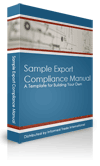Exporting Defense Services
Although most export applications submitted to the State Department are for hardware, the most important and complex cases are for defense services.
“Defense service” and “technical assistance agreement” are terms the ITAR extends beyond the normal meaning of the words “service” and “assistance.” For example, if a U.S. defense company provides controlled technical data to its foreign supplier so the latter can manufacture a component to certain specifications, the U.S. company is performing a “defense service” for which it will require a “technical assistance agreement” – despite the fact that it would seem that it is the foreign company that is providing a “service” or “assistance” to the U.S. company.
The export of defense services is authorized under a Technical Assistance Agreement or Manufacturing License Agreement. The value of defense services provided in accordance with such agreements is roughly equal to or greater than the value of hardware exports. Almost all agreements are referred to DTSA for national security and technical review. The vast majority are only approved subject to specific conditions on technology release (“provisos”).
Even if there is a government-to-government agreement applicable to the defense service (e.g., a Memorandum of Understanding between the US and a foreign government ), approval is still required to cover the activities of SPARTA. Furthermore, it is necessary for all parties to sign the agreement, even if the same parties have signed an MOU. This is to ensure that each party (U.S. or foreign) involved in activities covered by the agreement understands and accepts its responsibilities, including the requirement for prior written consent from the Department of State for any retransfer or change in end use.
Posted on April 14th, 2008 by keeton
Filed under: ITAR


Does the book, “Sample Export Compliance Manual” contain a template for preparing a Technical Assistance Agreement?
Thank you.